Find Help
More Items From Ergsy search
-
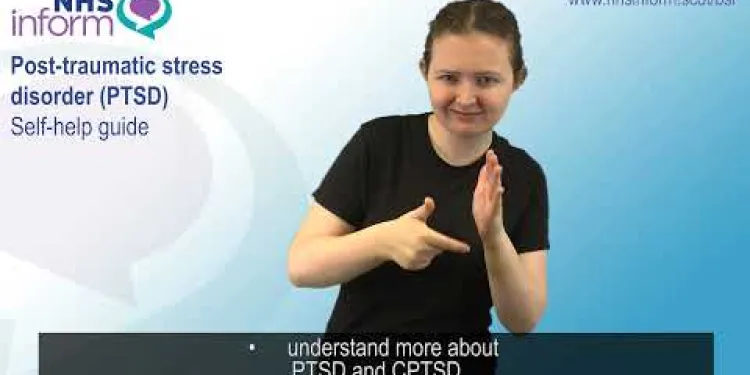
Post-traumatic stress disorder (PTSD) - Self-help guide
Relevance: 100%
-
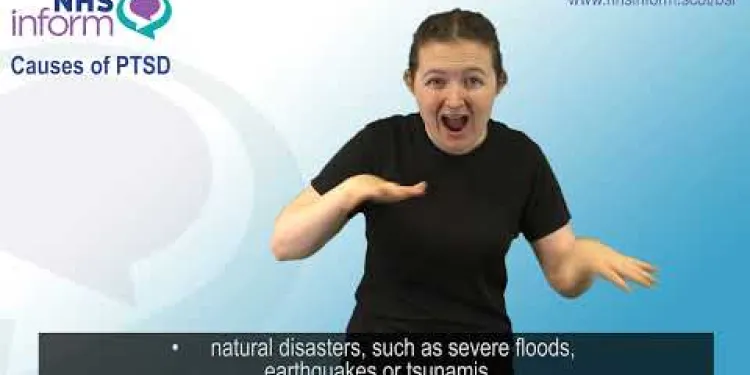
Post-traumatic stress disorder (PTSD) - Introduction
Relevance: 88%
-
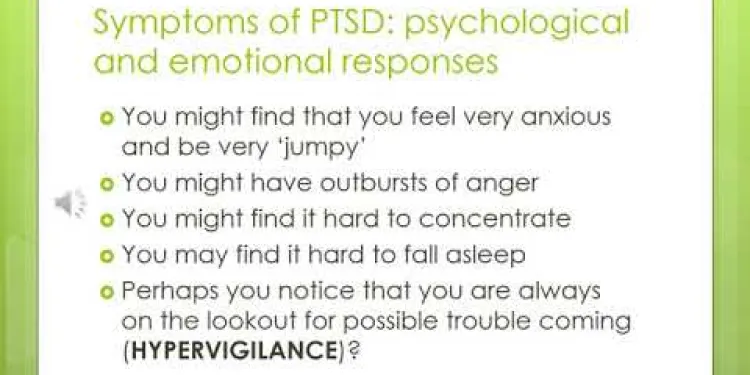
Understanding and Managing PTSD powerpoint slides with audio
Relevance: 41%
-

Short Films About Mental Health - Trauma PTSD
Relevance: 40%
-
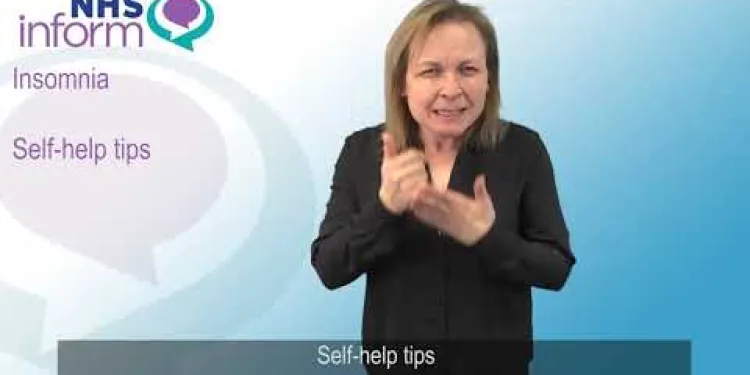
BSL - Insomnia self-help tips
Relevance: 30%
-

Are there self-help strategies for managing health-related anxiety?
Relevance: 27%
-
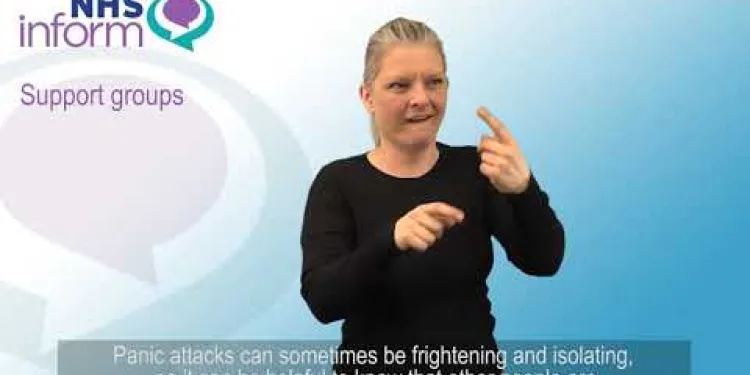
BSL - Treatment of panic disorder
Relevance: 25%
-
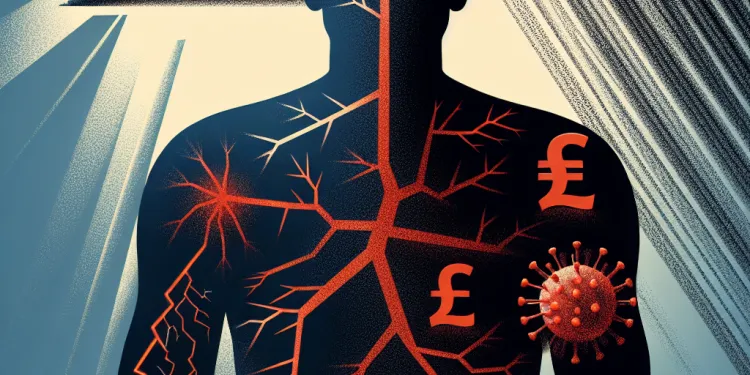
Can stress trigger shingles?
Relevance: 25%
-
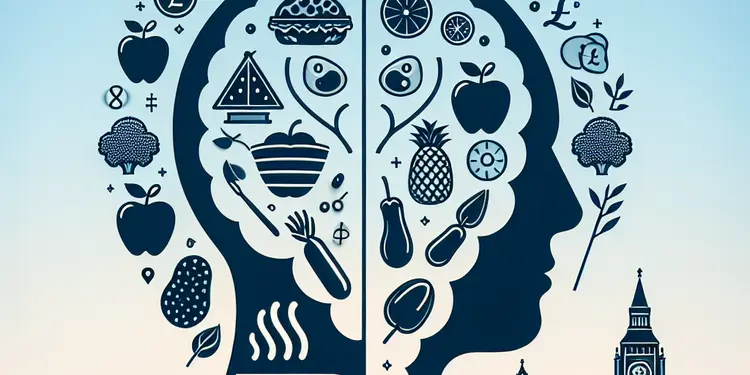
How do eating disorders affect mental health?
Relevance: 24%
-
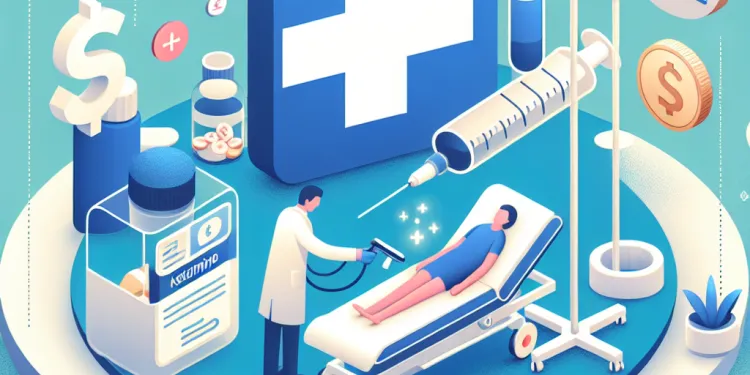
What conditions is ketamine used to treat?
Relevance: 24%
-
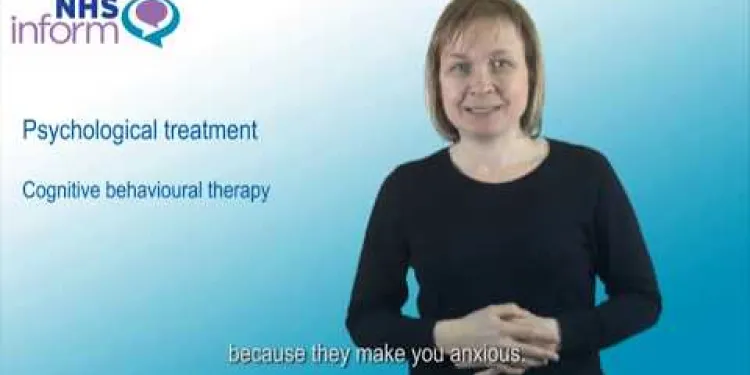
Treating generalised anxiety disorder (GAD)
Relevance: 24%
-
Can eating disorders occur with other mental health conditions?
Relevance: 23%
-

Does stress affect tinnitus?
Relevance: 23%
-
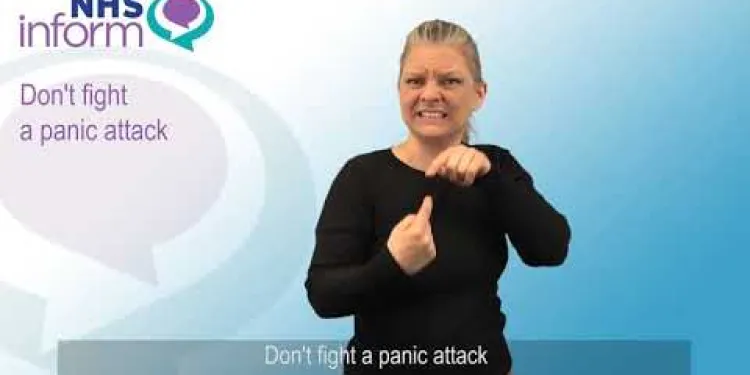
BSL - Panic disorder: things you can do to help yourself
Relevance: 23%
-
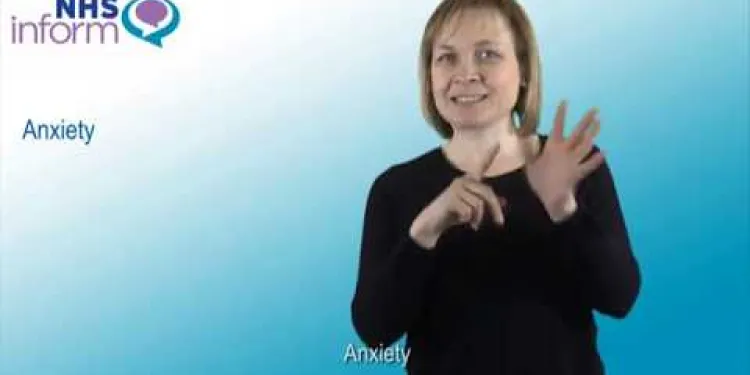
Generalised anxiety disorder (GAD)
Relevance: 23%
-

Coping with Stress and Anxiety
Relevance: 23%
-
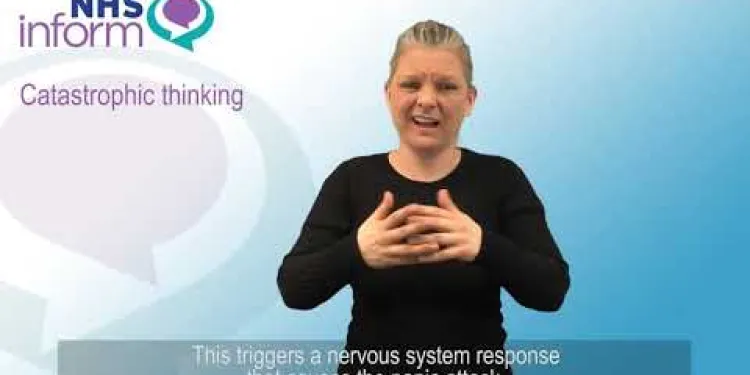
BSL - Causes of panic disorder
Relevance: 22%
-
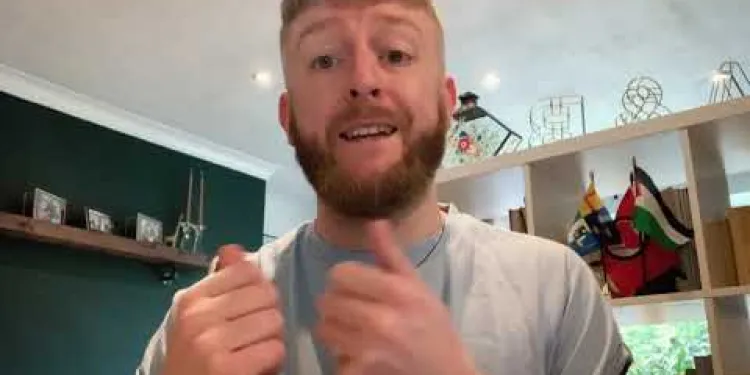
Living with Bipolar Disorder
Relevance: 21%
-
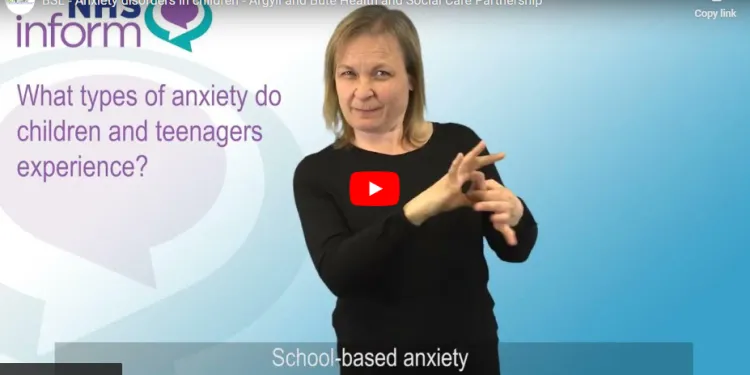
What type of anxiety do children and teenagers experience?
Relevance: 21%
-
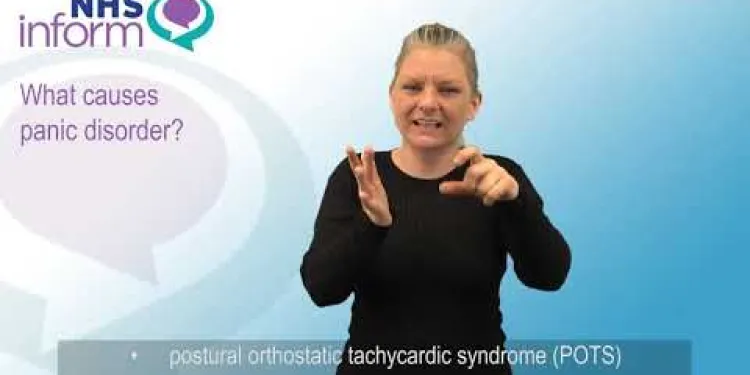
BSL - Introduction to panic disorder
Relevance: 21%
-
What is an Eating Disorder?
Relevance: 20%
-
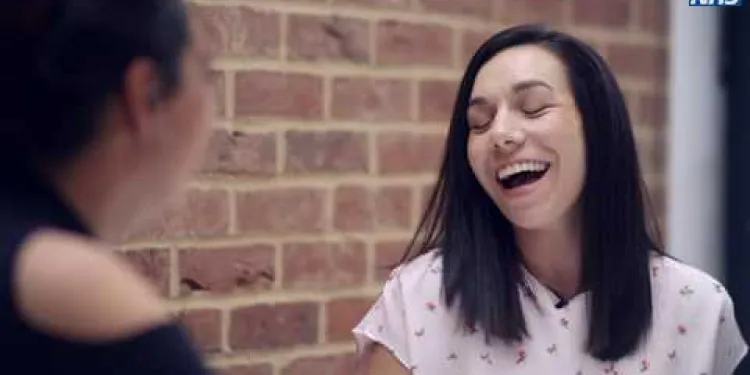
Short Films About Mental Health - Personality Disorders
Relevance: 20%
-
Are there preventative measures for eating disorders?
Relevance: 20%
-
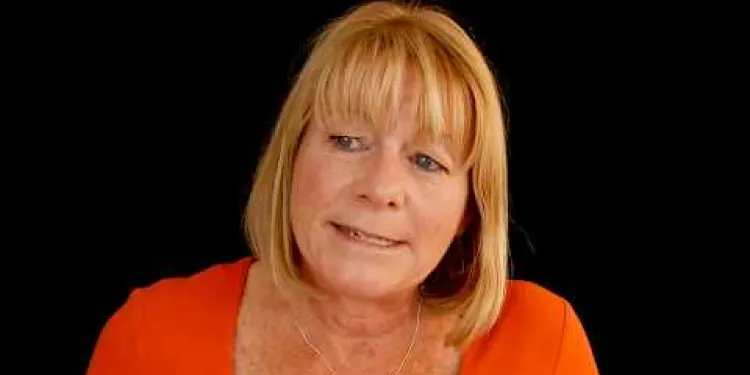
The treatment approach for an eating disorder
Relevance: 20%
-
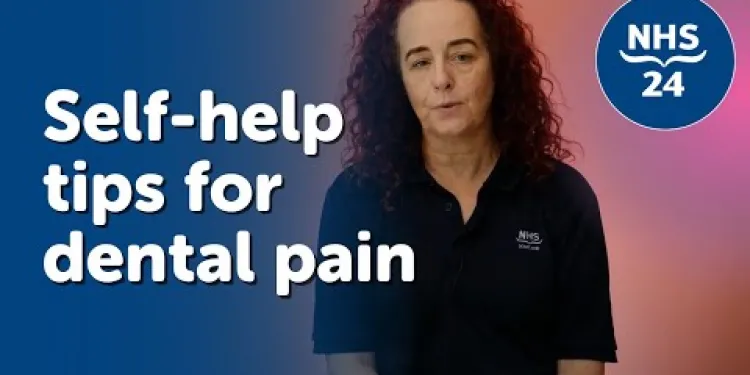
NHS 24 | Self-help tips for dental pain
Relevance: 19%
-

Does stress contribute to nettle rash?
Relevance: 19%
-
Are eating disorders only about food?
Relevance: 19%
-
Is it possible to recover from an eating disorder?
Relevance: 19%
-
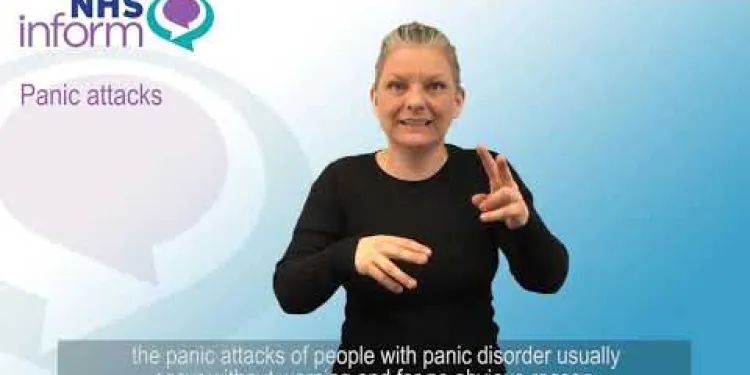
BSL - Diagnosis of panic disorder
Relevance: 19%
-
What is an eating disorder?
Relevance: 19%
-
What is the role of therapy in treating eating disorders?
Relevance: 19%
-
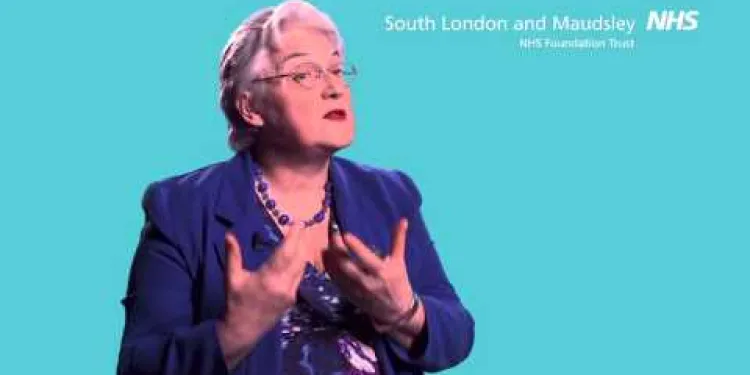
Eating disorders: treatment
Relevance: 19%
-
Who is at risk for developing an eating disorder?
Relevance: 19%
-
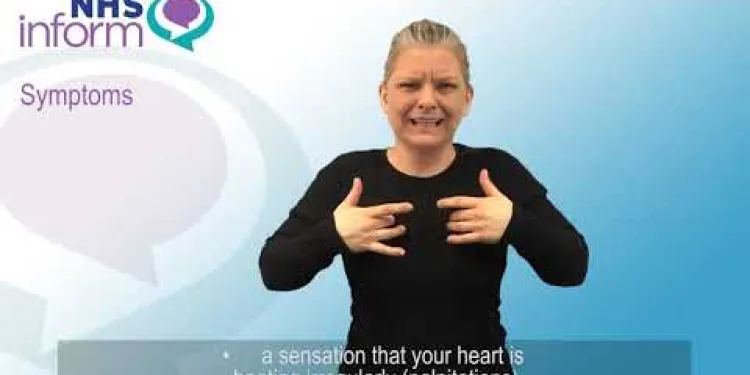
BSL - Symptoms of panic disorder
Relevance: 19%
-
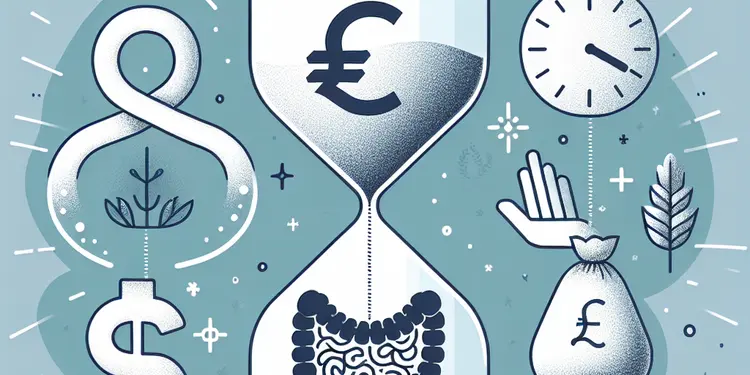
Does stress impact gut health as we age?
Relevance: 18%
-
How are eating disorders diagnosed?
Relevance: 18%
-
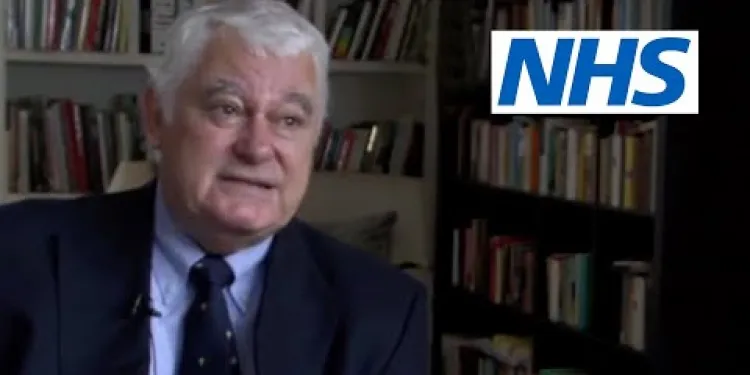
Bipolar disorder: Rod's story | NHS
Relevance: 18%
-
What are the main types of eating disorders?
Relevance: 18%
-
Can eating disorders be treated?
Relevance: 18%
-
What are common symptoms of eating disorders?
Relevance: 18%
Post-traumatic Stress Disorder (PTSD) - Self-help Guide
Understanding PTSD
Post-traumatic stress disorder (PTSD) is a mental health condition triggered by experiencing or witnessing a traumatic event. Common symptoms include flashbacks, severe anxiety, uncontrollable thoughts about the event, and nightmares. While anyone can develop PTSD, it is particularly prevalent among military personnel, emergency responders, and survivors of violent incidents.
Recognising the Symptoms
PTSD symptoms can vary widely among individuals. Common symptoms include:
- Intrusive memories and flashbacks
- Avoidance of reminders of the traumatic event
- Changes in emotional reactions or hyperarousal
- Negative changes in thinking and mood
If you or someone you know is experiencing these symptoms for more than a month, it may be beneficial to seek professional help.
Effective Self-help Strategies
Tackling PTSD on your own can be challenging, but certain strategies can help manage symptoms and improve quality of life:
- Maintain a Healthy Lifestyle: Engage in regular exercise, balanced nutrition, and adequate sleep. These are crucial for mental health.
- Practice Mindfulness and Relaxation: Techniques such as yoga, meditation, and deep-breathing exercises can help reduce stress and anxiety.
- Connect with Support Networks: Speaking with friends, family, or support groups can provide emotional support and reduce feelings of isolation.
- Set Realistic Goals: Gradually face and address trauma-related reminders to lessen their impact over time.
Professional Help in the UK
In the UK, various resources and organisations are available to support those suffering from PTSD:
- NHS: Provides information on available treatments and how to access services.
- Mind: Offers advice and support for managing PTSD symptoms.
- Combat Stress: Specialises in supporting veterans affected by PTSD.
Reaching out for professional help can be a significant step towards recovery. Remember, you are not alone, and support is available.
This HTML content provides key information about PTSD and outlines practical steps for self-help, formatted to be engaging and informative for readers in the UK.Post-traumatic Stress Disorder (PTSD) - Self-help Guide
Understanding PTSD
Post-traumatic stress disorder, or PTSD, happens after a scary or bad event. It can make people feel very anxious, have bad dreams, and think about the event all the time. Anybody can get PTSD. But it is more common for soldiers, emergency workers, and people who have been in dangerous situations.
Recognising the Symptoms
PTSD symptoms can be different for everyone. Some common signs are:
- Flashbacks or remembering the event again and again
- Trying to avoid things that remind them of the event
- Feeling jumpy or on edge
- Feeling sad, hopeless, or having bad thoughts
If these symptoms last more than a month, it is a good idea to talk to a doctor or therapist.
Effective Self-help Strategies
Dealing with PTSD can be hard, but here are some ways to feel better:
- Stay Healthy: Exercise, eat good food, and get enough sleep. These help keep your mind healthy.
- Relaxation: Try yoga, meditation, or deep breathing to feel calm and less stressed.
- Talk to People: Share your feelings with friends, family, or support groups. This can help you feel less alone.
- Set Small Goals: Face little reminders of the event step by step. This can help make them less scary.
Professional Help in the UK
In the UK, there are places and people who can help with PTSD:
- NHS: Gives information on treatments and how to get help.
- Mind: Offers advice and support for PTSD.
- Combat Stress: Helps veterans with PTSD.
Getting help from a doctor or therapist is a big step towards getting better. Remember, you are not alone, and there are people who want to help you.
Frequently Asked Questions
What is PTSD?
Post-traumatic stress disorder (PTSD) is a mental health condition triggered by experiencing or witnessing a traumatic event. Symptoms may include flashbacks, nightmares, severe anxiety, and uncontrollable thoughts about the event.
What are the common symptoms of PTSD?
Common symptoms of PTSD include reliving the trauma (flashbacks, nightmares), avoiding reminders of the trauma, negative changes in thinking and mood, and changes in physical and emotional reactions (being easily startled, irritability).
Who is at risk of developing PTSD?
Anyone who has experienced or witnessed a traumatic event can develop PTSD. However, risk factors include having a history of mental health issues, lack of support after the trauma, experiencing intense or long-lasting trauma, and having previous traumatic experiences.
How common is PTSD in the UK?
In the UK, it is estimated that PTSD affects about 1 in 3 people who have had a traumatic experience. Around 3% of people in the UK are likely to suffer from PTSD at some point in their lives.
Can PTSD be treated?
Yes, PTSD can be treated. Effective treatments include psychotherapy (such as cognitive-behavioural therapy or eye movement desensitisation and reprocessing), medications (like antidepressants), and self-help strategies.
What self-help strategies can I use for PTSD?
Self-help strategies include engaging in regular physical activity, maintaining a routine, connecting with supportive friends and family, practising relaxation techniques, and avoiding alcohol and drugs.
Can children develop PTSD?
Yes, children can develop PTSD. Symptoms in children may include behavioral changes, nightmares, bed-wetting, and being unusually clingy with a parent or other adult.
How does PTSD affect daily life?
PTSD can affect daily life by causing difficulties in concentrating, making decisions, maintaining relationships, and holding down a job. It can also lead to avoidance of places or situations that remind the individual of the trauma.
Is there a stigma around PTSD?
Yes, unfortunately, there is still some stigma around PTSD. This can prevent individuals from seeking help. Raising awareness and understanding about PTSD can help reduce this stigma.
How can I support a loved one with PTSD?
You can support a loved one with PTSD by listening to them, encouraging them to seek professional help, being patient, and helping them maintain a routine. It is also important to take care of your own well-being.
What should I do if I think I have PTSD?
If you think you have PTSD, it is important to seek help from a healthcare professional. They can provide a diagnosis and recommend appropriate treatment options.
Can PTSD symptoms go away on their own?
Sometimes, PTSD symptoms can diminish over time, but for many people, professional treatment is necessary to fully recover.
How long does PTSD last?
The duration of PTSD varies. For some, it may last several months, while for others, symptoms can persist for years. The key to recovery is early and effective treatment.
Is PTSD a sign of weakness?
No, PTSD is not a sign of weakness. It is a mental health condition that can affect anyone who has experienced or witnessed a traumatic event.
Where can I find support for PTSD in the UK?
Support for PTSD in the UK is available through the NHS, private therapists, charities like Mind and Combat Stress, and support groups. Online resources and helplines also provide assistance.
What is PTSD?
PTSD stands for Post-Traumatic Stress Disorder. It is a condition that some people get after a very scary or bad event.
When you have PTSD, you might feel scared, upset, or worried even when you are safe. You might have bad dreams or remember the scary event a lot.
If you have these feelings, talking to someone like a doctor or a teacher can help. You can also draw pictures or write about how you feel. These can help you feel better.
Post-traumatic stress disorder, or PTSD, is a health problem that affects the mind. It happens after a scary or bad event that you lived through or saw. People with PTSD might have some of these problems: they could remember the event over and over, have bad dreams, feel very anxious or worried, and have thoughts about the event that they can't control.
Here are some ways to help if you have trouble reading: - **Use a Ruler:** Place a ruler under each sentence to help focus on one line of text at a time. - **Read Out Loud:** Hearing the words can sometimes make it easier to understand them. - **Take Breaks:** Take short breaks if you find it hard to focus for long. - **Highlight Important Words:** Use a highlighter to mark the key words in the text.What are the common signs of PTSD?
PTSD stands for post-traumatic stress disorder. It can happen after a scary event. Here are some common signs:
- Bad dreams or nightmares
- Feeling scared even when you are safe
- Flashbacks, like reliving the bad event
- Feeling upset when something reminds you of the scary event
- Having a hard time feeling happy or relaxed
- Staying away from places or things that remind you of the event
- Feeling on edge or easily startled
- Having difficulty sleeping
- Feeling tense or "on guard"
If you think you might have PTSD, talk to a teacher, parent, or someone you trust. They can help you find someone to talk to, like a counselor.
If you have PTSD, you might feel the bad event happening again. This can happen in dreams or when you remember it. You may try not to think about the bad event or stay away from things that remind you of it. Your thoughts and feelings may change, and you might feel sad or upset. Your body and feelings can also change. You might jump when you hear loud noises or get mad easily.
If this is hard to understand, you can talk to someone you trust. Using pictures, drawing, or having someone read it with you might help too.
Who can get PTSD?
If something really scary or bad happens to someone, they might get PTSD. Some things that can make PTSD more likely are:
- If you have had mental health problems before.
- If you don’t have friends or family to help you after the bad thing happened.
- If the scary thing was really bad or lasted a long time.
- If you have had other bad things happen before.
To feel better, talking to a trusted adult or a therapist can help. Writing in a journal or drawing pictures about feelings can also be useful. Remember, you are not alone, and there are people who can help you.
How often do people get PTSD in the UK?
PTSD means Post-Traumatic Stress Disorder. It happens after very scary or bad experiences.
In the UK, some people have PTSD. This means they might have bad dreams or feel upset about things that happened before.
Not everyone gets PTSD. But it is okay to ask for help if you feel upset.
If you find reading hard, you can ask someone to help read with you. You can also use tools that read the words out loud.
In the UK, about 1 out of every 3 people who go through a really scary or bad event can get PTSD. About 3% of all people in the UK might get PTSD at some time in their lives.
If you find reading hard, you can use tools that read the text out loud or highlight words. These can help you understand better.
Can PTSD be treated?
Yes, PTSD can be treated. PTSD stands for Post-Traumatic Stress Disorder. It is when someone feels very stressed or scared after something bad has happened. Doctors and therapists can help people feel better. They might use talking therapy or medicine. If you think you have PTSD, talk to a doctor or a trusted adult. They can help you find the right support.
Some tools that might help include:
- Talking to a therapist or counselor.
- Relaxation exercises like deep breathing.
- Drawing or writing about your feelings.
- Spending time with people you trust.
Yes, PTSD can get better with help. There are good ways to treat it.
Talking therapy can help. This is when you talk to someone who is trained to help. They can use special ways to help like thinking-changing ideas or eye movements.
Medicine can also help. Some medicines can make you feel better and less sad.
Doing things by yourself can help too. This is called self-help. You can learn ways to feel better on your own.
How can I help myself feel better when I have PTSD?
Here are some things you can do to help yourself:
- Try to move your body every day. It can be a walk, run, or playing a sport.
- Do the same things at the same time each day. This is called having a routine. It helps you feel safe.
- Spend time with friends and family who make you feel good. Talk to them about how you feel.
- Learn how to relax. You can take deep breaths, listen to calming music, or try meditation.
- Stay away from alcohol and drugs. They are not good for you and can make you feel worse.
Can kids get PTSD?
Yes, kids can get PTSD. PTSD means feeling very upset after something scary happens. It stands for Post-Traumatic Stress Disorder.
Here’s how you know if a kid might have PTSD:
- They might feel upset or scared a lot.
- They might have bad dreams.
- They might not want to talk about what happened.
- They might act differently than they used to.
It's important to help kids who have PTSD. Here are some ways to help:
- Talk to a doctor or counselor.
- Help the kid feel safe.
- Let them talk about their feelings.
- Be patient and kind.
Tools that can help:
- Books with pictures about feelings.
- Calm music or soothing activities like drawing.
- Talking to someone they trust.
Yes, kids can get PTSD. This means they feel very upset after something bad happens. Signs in kids might be acting different, having bad dreams, wetting the bed, or sticking close to a parent or adult.
How does PTSD affect daily life?
PTSD means Post-Traumatic Stress Disorder. It happens after scary or bad events.
People with PTSD may feel sad, scared, or worried. It can make doing daily things hard.
They might have trouble sleeping or have bad dreams. Loud noises or reminders can make them feel upset.
They might not want to be around other people. Simple tasks may feel too hard.
Getting help really helps. Talking to a doctor or someone you trust can be good.
Use calming tools like deep breathing or listening to music.
PTSD can make everyday life hard. It can be tough to focus, choose what to do, stay friends with people, and keep working at a job. People might also try to stay away from places or things that remind them of what happened.
Helpful Tips:
- Focus Tools: Use things like lists or timers to help you concentrate.
- Simple Decisions: Break choices into smaller steps to make them easier.
- Friendship Help: Talk to someone you trust about how you feel.
- Work Ideas: Take short breaks to help manage stress at work.
Is PTSD a Problem for People?
Some people have PTSD. This means they have big feelings and strong memories after something bad happened.
Sometimes, people treat them unfairly because they do not understand. This is called a stigma. Stigma can make people feel bad or ashamed.
To help, we can learn more about PTSD and understand how people feel. You can talk to an adult or look at pictures and stories that explain PTSD.
Yes, some people still have wrong ideas about PTSD. This can stop people from asking for help. We can help by talking and learning about PTSD to make these wrong ideas go away.
How can I help someone I care about who has PTSD?
Here are some ways you can help:
- **Listen:** Let them talk about their feelings when they are ready.
- **Be there:** Spend time with them and show you care.
- **Learn:** Read books or look online to understand PTSD better.
- **Be patient:** Healing takes time, so be patient.
- **Supportive tools:** Suggest they try talking to a friendly counselor, or use an app that helps with relaxation, like Calm or Headspace.
- **Spend time together:** Do fun things together that they enjoy.
Remember, just being there is a big help!
You can help someone you care about who has PTSD. You can listen to them, tell them to talk to a doctor or counselor, be patient with them, and help them keep a regular schedule. Remember, it is also important to take care of yourself too.
What should I do if I think I have PTSD?
If you feel scared or upset after something bad has happened, you might have PTSD. PTSD means feeling bad for a long time after scary things happen.
Here are some things you can do:
- Talk to a grown-up you trust. It can help to tell someone how you feel.
- Visit a doctor. Doctors can help you feel better.
- Write down your feelings in a diary. This can help you understand your thoughts.
- Try to relax. Things like drawing or gentle breathing can help you feel calm.
- Remember, it's okay to ask for help. You are not alone.
If you think you have PTSD, it is important to get help from a doctor or nurse. They can tell you if you have PTSD and suggest ways to feel better.
Can PTSD symptoms go away on their own?
PTSD stands for Post-Traumatic Stress Disorder. It can happen after a scary or bad experience.
Some people ask if the hard feelings from PTSD will go away without help.
Sometimes, people feel better on their own over time.
But, many people need help to feel better.
Talking to a doctor or therapist can help a lot.
Doing things like breathing exercises or drawing can help calm you down.
If you or someone you know is having a hard time, it’s good to ask for help.
Sometimes, the signs of PTSD can get better by themselves, but many people need help from a doctor or therapist to feel all better.
How long does PTSD last?
PTSD can last for a short time, or it can last a long time. It depends on the person.
For some people, PTSD goes away on its own. For others, it might last for years.
Getting help from a doctor or counselor can make PTSD better. Talking about your feelings and learning ways to cope can help.
If you have PTSD, you can use things like:
- Talking to someone you trust
- Writing down your feelings
- Doing calm activities like drawing or listening to music
Remember, you are not alone. There are people who can help you feel better.
PTSD can last different amounts of time for different people. Some people might feel better in a few months. For others, it can take years. Getting help early is very important to start feeling better.
Is PTSD a Sign of Weakness?
PTSD is not a sign of weakness. PTSD means feeling scared after something bad has happened.
Many strong people can get PTSD. It is okay to ask for help if you have PTSD.
Talking to someone can help. You can try drawing or writing about how you feel too.
No, PTSD is not because someone is weak. It is a health problem of the mind. It can happen to anyone who has seen or gone through something very scary or upsetting.
Where can I get help for PTSD in the UK?
If you have PTSD, you can find help in the UK. Here is what you can try:
- Talk to your doctor. They can help you find the right support.
- Look for local support groups. You can talk to others who understand how you feel.
- Try online support. You can find websites and helplines to help you.
Remember, it is okay to ask for help. You are not alone. Talking to someone can make you feel better.
If you have PTSD, there are places in the UK where you can get help. The NHS can help you. You can also see a private therapist. Charities like Mind and Combat Stress are there to support you too. There are groups you can join to talk to others who understand. You can also find help online or by calling helplines.
Useful Links
This website offers general information and is not a substitute for professional advice.
Always seek guidance from qualified professionals.
If you have any medical concerns or need urgent help, contact a healthcare professional or emergency services immediately.
Some of this content was generated with AI assistance. We’ve done our best to keep it accurate, helpful, and human-friendly.
- Ergsy carfully checks the information in the videos we provide here.
- Videos shown by Youtube after a video has completed, have NOT been reviewed by ERGSY.
- To view, click the arrow in centre of video.
- Most of the videos you find here will have subtitles and/or closed captions available.
- You may need to turn these on, and choose your preferred language.
- Go to the video you'd like to watch.
- If closed captions (CC) are available, settings will be visible on the bottom right of the video player.
- To turn on Captions, click settings .
- To turn off Captions, click settings again.
More Items From Ergsy search
-

Post-traumatic stress disorder (PTSD) - Self-help guide
Relevance: 100%
-

Post-traumatic stress disorder (PTSD) - Introduction
Relevance: 88%
-

Understanding and Managing PTSD powerpoint slides with audio
Relevance: 41%
-

Short Films About Mental Health - Trauma PTSD
Relevance: 40%
-

BSL - Insomnia self-help tips
Relevance: 30%
-

Are there self-help strategies for managing health-related anxiety?
Relevance: 27%
-

BSL - Treatment of panic disorder
Relevance: 25%
-

Can stress trigger shingles?
Relevance: 25%
-

How do eating disorders affect mental health?
Relevance: 24%
-

What conditions is ketamine used to treat?
Relevance: 24%
-

Treating generalised anxiety disorder (GAD)
Relevance: 24%
-
Can eating disorders occur with other mental health conditions?
Relevance: 23%
-

Does stress affect tinnitus?
Relevance: 23%
-

BSL - Panic disorder: things you can do to help yourself
Relevance: 23%
-

Generalised anxiety disorder (GAD)
Relevance: 23%
-

Coping with Stress and Anxiety
Relevance: 23%
-

BSL - Causes of panic disorder
Relevance: 22%
-

Living with Bipolar Disorder
Relevance: 21%
-

What type of anxiety do children and teenagers experience?
Relevance: 21%
-

BSL - Introduction to panic disorder
Relevance: 21%
-
What is an Eating Disorder?
Relevance: 20%
-

Short Films About Mental Health - Personality Disorders
Relevance: 20%
-
Are there preventative measures for eating disorders?
Relevance: 20%
-

The treatment approach for an eating disorder
Relevance: 20%
-

NHS 24 | Self-help tips for dental pain
Relevance: 19%
-

Does stress contribute to nettle rash?
Relevance: 19%
-
Are eating disorders only about food?
Relevance: 19%
-
Is it possible to recover from an eating disorder?
Relevance: 19%
-

BSL - Diagnosis of panic disorder
Relevance: 19%
-
What is an eating disorder?
Relevance: 19%
-
What is the role of therapy in treating eating disorders?
Relevance: 19%
-

Eating disorders: treatment
Relevance: 19%
-
Who is at risk for developing an eating disorder?
Relevance: 19%
-

BSL - Symptoms of panic disorder
Relevance: 19%
-

Does stress impact gut health as we age?
Relevance: 18%
-
How are eating disorders diagnosed?
Relevance: 18%
-

Bipolar disorder: Rod's story | NHS
Relevance: 18%
-
What are the main types of eating disorders?
Relevance: 18%
-
Can eating disorders be treated?
Relevance: 18%
-
What are common symptoms of eating disorders?
Relevance: 18%


